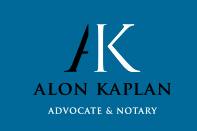
Trust services for estates are essential in managing and distributing your assets as specified in legal agreements. These services involve creating and managing trusts, ensuring asset protection, wealth distribution control, probate avoidance, and tax minimization. Trustees, responsible for transparent communication and diligent asset management, adhere to fiduciary duties. Extensive legal frameworks help assure compliance, benefiting estates of all sizes. Expand your understanding further and discover how trusts can seamlessly facilitate estate planning.
Key Takeaways
- Trust services manage and distribute estate assets according to the grantor’s wishes.
- They provide asset protection from creditors and legal challenges.
- Trust services facilitate the avoidance of probate, speeding up asset transfers.
- They offer tax minimization strategies for estate management.
- Professional trustees ensure compliance with legal obligations and transparent communication with beneficiaries.
Understanding Trust Fundamentals
Although understanding the intricacies of trust fundamentals might seem intimidating, it’s essential for effective estate planning.
A trust is a legal fiduciary arrangement where a trustee manages assets for beneficiaries, as defined in trust definitions. The trust agreement, a critical document, outlines the rules for management and distribution of these assets. Trusts are not only for the wealthy; they are beneficial for estates of all sizes, offering significant advantages to a wide range of individuals.
You’ll find three main parties involved: the grantor, who creates and funds the trust; the trustee, responsible for asset management; and the beneficiaries, who receive the benefits. Development of Trusts in Israel has seen a historical evolution, providing valuable insights into modern trust practices and their benefits.
Trust property is held separately from personal assets, ensuring that the grantor’s wishes are honored. This arrangement offers significant advantages, such as avoiding probate, maintaining privacy, and exercising control over how and when assets are distributed to beneficiaries.
Key Types of Trusts for Estate Planning
When you’re planning an estate, knowing the types of trusts available is essential to making informed decisions. Trust types like revocable and irrevocable trusts offer different levels of control and asset protection. Revocable trusts allow you to modify or dissolve them during your lifetime, providing flexibility and control over your assets. These trusts become irrevocable upon your death, ensuring your wishes are carried out without further changes. In contrast, irrevocable trusts can’t be altered without beneficiary consent, providing benefits like probate avoidance, creditor protection, and tax advantages. Living trusts, a form of revocable trust, are established during your lifetime and help bypass probate, maintaining privacy. Trusts can help avoid probate, ensuring smoother asset distribution. Understanding these trust comparisons aids in selecting the right structure for your estate planning needs. In Israel, trust estate planning includes unique considerations based on historical and legal contexts, as explored by Alon Kaplan in his work.
Benefits of Using Trusts in Estate Management

Understanding the benefits of using trusts in estate management is essential for effective planning.
Trusts offer significant asset protection by separating ownership from beneficiaries, shielding assets from creditors and legal challenges. This guarantees that your beneficiaries receive the intended estate without external interference.
Trusts also allow for controlled wealth distribution, providing precise instructions on how and when assets are distributed. You can implement staggered or conditional distributions, catering to specific needs like education or age milestones.
Additionally, trusts facilitate probate avoidance, expediting asset transfer and maintaining family confidentiality. By bypassing probate, you reduce administrative burdens and potential legal disputes. Trusts also provide opportunities for tax minimization and flexibility in managing unforeseen circumstances, guaranteeing thorough estate management. The Alon Kaplan Advocate & Notary firm specializes in these aspects and is recognized as a leading firm in the field of trusts work in Israel. They can address complex family dynamics, ensuring that assets are distributed according to your wishes even in situations involving divorce or blended families.
Roles and Responsibilities of Trustees
Trustees play a pivotal role in managing and executing the terms of a trust, ensuring that the interests of beneficiaries are upheld.
As a trustee, your duties involve significant fiduciary obligations. You must manage trust assets, including real estate and investments, with the beneficiaries’ best interests in mind. This includes making informed investment decisions, diversifying assets to minimize risks, and maintaining property effectively. Trustees are required to safeguard assets for both the grantor and beneficiaries, ensuring that the trust’s instructions are followed without intermingling personal assets. In Israel, trusts and hekdesh serve as efficient instruments for estate planning, offering advantages for international families residing in the country.
You’re also responsible for fulfilling legal obligations such as tax filings and record-keeping. Transparent communication with beneficiaries is essential, providing regular updates and addressing concerns promptly.
Avoid conflicts of interest, comply with trust terms, and maintain a high fiduciary standard. Your accountability to beneficiaries underscores the importance of professional conduct and ethical decision-making.
Trust Administration and Management Services

In managing a trust, the extensive administration and management services play a key role in guaranteeing that trustees fulfill their obligations effectively. Your duties begin with a thorough trust asset inventory, which includes listing real estate, securities, and personal property. This guarantees transparency and legal compliance. Additionally, trustees have a fiduciary duty to act solely in the best interests of beneficiaries, ensuring that all actions and decisions made are aligned with this fundamental principle.
Next, focus on investment strategy implementation to align with trust goals and beneficiaries’ interests, while monitoring asset performance regularly. Here’s a structured approach:
- Inventory and Document: Verify asset titles and ownership, guaranteeing they’re transferred to the trust’s name.
- Monitor and Adjust: Design strategies, balance risks, and engage financial advisors when necessary.
- Communicate and Record: Maintain detailed records and communicate with beneficiaries about distributions and trust status.
Furthermore, Alon Kaplan Law Firm, established in 1975, provides a comprehensive legal framework for managing international trusts and estates, ensuring that all legal requirements are met effectively. These steps guarantee that trust management remains effective and compliant.
Trust Companies and Their Fiduciary Role
Trust companies play a pivotal role in asset management by acting as fiduciaries, responsible for overseeing and caring for assets on behalf of others. They adhere to fiduciary ethics, ensuring they act with loyalty, good faith, and reasonable care. Trust accountability is central, as they must manage assets while prioritizing beneficiaries’ interests. Their fiduciary responsibility demands a high standard of care, often exceeding personal asset management norms. Trust companies balance the interests of current and remainder beneficiaries impartially, making investment decisions that align with trust documents. They focus on asset preservation and risk minimization, ensuring compliance with legal and financial regulations. Moreover, corporate fiduciaries provide continuity across generations by maintaining an understanding of family needs over time, adapting their roles as family wealth grows.
Legal Framework for Trusts in Israel

The legal framework for trusts in Israel is shaped by the Trust Law of 1979, which establishes the guidelines for creating and managing trusts. This law defines a trust as a relationship where a trustee holds or controls property for beneficiaries. Trust creation can occur through contracts, deeds, or bequests. Trust enforcement guarantees these relationships are maintained, protecting the beneficiaries’ rights.
Here are some key points:
- Trust Establishment: Trusts aren’t legal entities; they lack legal personality, but can be created in various ways, including through wills.
- Trust Types: Available types include family trusts, Israeli resident trusts, and testamentary trusts.
- Regulatory Framework: The law covers trust asset protection and enforcement, also recognizing trusts under foreign jurisdictions. Israel’s Trust Law emphasizes the protection of beneficiaries’ rights, ensuring that the trustee acts in accordance with the trust’s terms.
Frequently Asked Questions
How Do I Choose the Right Trustee for My Estate?
To choose the right trustee for your estate, evaluate trustee qualifications, considering investment knowledge, legal expertise, and adaptability to family dynamics.
Prioritize integrity and objectivity, guaranteeing they separate personal feelings from fiduciary duties. Assess their time commitment and communication skills.
Consider professional trustees for stability. Plan for succession by naming successors to address unforeseen events like incapacity.
Engage in discussions to guarantee alignment with your estate’s goals.
Can Trusts Be Challenged or Contested in Court?
You can challenge trusts in court if you have legal grounds for trust disputes. Common grounds include lack of capacity, undue influence, fraud, improper execution, or revocation.
Beneficiaries, excluded heirs, and successor trustees can contest trusts. The process involves petition filing, evidence gathering, and court review.
Although outcomes can impact asset distribution, there’s no guarantee of success, and legal costs can be high.
Ascertain all interested parties receive notice of contestation.
What Happens to a Trust if a Beneficiary Passes Away?
When a beneficiary passes away, their rights to the trust distribution typically lapse.
The trust’s terms will dictate whether the deceased beneficiary’s share is redistributed to alternate beneficiaries or reverts to the trust estate.
Successor trustees must carefully manage these adjustments, ensuring compliance with the trust’s instructions.
If the trust lacks clear guidance, amendments or court petitions might be necessary to clarify distribution paths and uphold beneficiary rights effectively.
How Are Digital Assets Handled in a Trust?
When handling digital assets in a trust, you guarantee digital ownership is clearly defined.
Trusts bypass probate, enabling efficient asset distribution. You must create an inventory of digital assets, securely store access credentials, and designate beneficiaries.
Selecting a competent trustee is essential for managing these assets. Regular updates to the trust are necessary to reflect changes.
This process guarantees digital assets are managed and distributed according to your wishes, maintaining privacy and legal compliance.
Are There Cultural Considerations in Establishing a Trust?
You might find it interesting that 65% of individuals worldwide avoid estate planning due to cultural values and trust traditions.
When establishing a trust, it’s essential to take into account these aspects. Cultural values influence how people perceive asset distribution, often preferring informal methods over formal documentation.
Trust traditions may dictate who manages assets, aligning with familial roles and responsibilities. Understanding these factors guarantees estate planning respects cultural norms, fostering better compliance and engagement.
Conclusion
In managing an estate, you might worry about the complexity of trusts, but think of them as a well-organized toolkit. Trusts offer structured, efficient solutions for distributing assets, guaranteeing your wishes are honored. With the right trustee, your estate is managed prudently, and beneficiaries receive their due. Trust companies play an essential fiduciary role, providing professional oversight. Understanding legal frameworks, especially in regions like Israel, guarantees compliance and peace of mind, allowing you to focus on other priorities.

